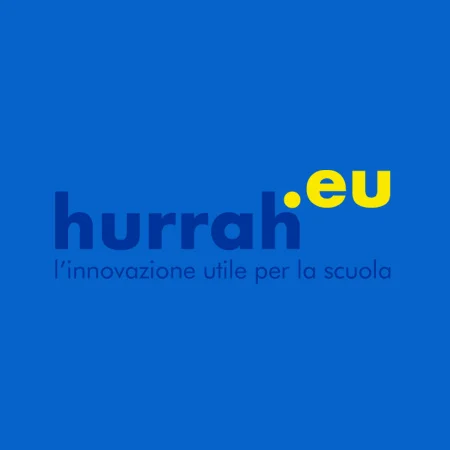- University of Kent
- United Kingdom
- Dottorato

Gain in-depth knowledge of analytical and predictive modelling skills as well as management, communication and research skills. To meet the growing demand for graduates with analytics capabilities, the MSc in Business Analytics equips you with the latest analytics tools to analyse and interpret data, forecast future trends, automate and streamline decisions, and optimise courses of action. In the era of Big Data, analytics is becoming a strategic necessity in virtually all areas of business and is an essential tool to drive real-time decisions, foster evidence-based decision-making and sustain competitive advantage. According to a recent ranking by Glassdoor.com, one of the world’s largest job and recruiting sites, Data Scientist has been named as the best job in the US for three years running. Harvard Business Review claims the 'sexiest job of the 21st century' with practitioners having rare and highly sought-after skills.
Learn how to apply descriptive, predictive and prescriptive modelling techniques to help organisations improve performance, explore alternatives, and anticipate and shape business outcomes in a rapidly changing environment. You also develop an understanding of fundamental analytics techniques, such as statistical analysis, machine learning, optimisation, simulation, and spreadsheet modelling.
This programme is ideal for graduates with a quantitative background who are seeking to gain an in-depth knowledge of quantitative and analytical skills as well as management, communication and research skills. Upon graduation, you will be ready to start a career in a variety of industries and sectors including airline, manufacturing, energy, healthcare, banking, marketing and government.
While enrolled on the programme you have the opportunity to work for real organisations, improve your consultancy skills and enhance your employability through the Student In-company Scheme, which bridges the gap between classroom learning and workplace experience. As part of the Student In-company Scheme, students undertook a project to aid BMI The Chaucer Hospital in improving efficiency - read the full blog post to learn more.
Students are also involved in a variety of activities, including case studies, team project work, guest lectures and industry visits.
The state-of-the-art analytics packages including R, SPSS, Weka, and MS Excel, as well as optimisation packages (IBM ILOG CPLEX and OPL), simulation packages (SIMUL8) and programming languages (VBA), are taught in the programme.
Optional Pathways
Students have the option to undertake the MSc Business Analytics programme in two further specialist pathways - Business Analytics (Smart Logistics) or Business Analytics (Finance). Students can choose either pathway or remain on the main MSc Business Analytics programme following enrolment in September. Details of the specialist modules to be undertaken for either pathway are listed under the course structure section.
Funding opportunities
Kent Business School has a wide range of funding opportunities for postgraduate students, which include Scholarships, Bursaries, Kent Business School Loyalty Award for University of Kent undergraduates and the KBS Early Bird Scheme. The Early Bird equates to a 10% discount on tuition fees.
For more information on funding available from the University of Kent, please visit the Student Funding page.
About Kent Business School
With over 25 years’ experience delivering business education, Kent Business School is a leading UK business school, both for the standard of our teaching and student satisfaction. Our portfolio of postgraduate programmes demonstrates the breadth and depth of our expertise. Academic research and links with global business inform our teaching, ensuring a curriculum that is relevant and current. We also hold a number of accreditations by professional bodies.
Studying at Kent Business School (KBS) gives you the opportunity to increase your employability with real-life case studies, a student council and a business society. We have strong links to local and national organisations providing opportunities for projects, internships and graduate placements. The School attracts many high-profile speakers from industry and last year included visits and lectures from staff of the Bank of England, BAE Systems, Barclays, Lloyds Insurance, Cummins, Delphi and Kent County Council.
The School currently has 60 PhD students, who form a dynamic and close-knit research community.
Learn how to apply descriptive, predictive and prescriptive modelling techniques to help organisations improve performance, explore alternatives, and anticipate and shape business outcomes in a rapidly changing environment. You also develop an understanding of fundamental analytics techniques, such as statistical analysis, machine learning, optimisation, simulation, and spreadsheet modelling.
This programme is ideal for graduates with a quantitative background who are seeking to gain an in-depth knowledge of quantitative and analytical skills as well as management, communication and research skills. Upon graduation, you will be ready to start a career in a variety of industries and sectors including airline, manufacturing, energy, healthcare, banking, marketing and government.
While enrolled on the programme you have the opportunity to work for real organisations, improve your consultancy skills and enhance your employability through the Student In-company Scheme, which bridges the gap between classroom learning and workplace experience. As part of the Student In-company Scheme, students undertook a project to aid BMI The Chaucer Hospital in improving efficiency - read the full blog post to learn more.
Students are also involved in a variety of activities, including case studies, team project work, guest lectures and industry visits.
The state-of-the-art analytics packages including R, SPSS, Weka, and MS Excel, as well as optimisation packages (IBM ILOG CPLEX and OPL), simulation packages (SIMUL8) and programming languages (VBA), are taught in the programme.
Optional Pathways
Students have the option to undertake the MSc Business Analytics programme in two further specialist pathways - Business Analytics (Smart Logistics) or Business Analytics (Finance). Students can choose either pathway or remain on the main MSc Business Analytics programme following enrolment in September. Details of the specialist modules to be undertaken for either pathway are listed under the course structure section.
Funding opportunities
Kent Business School has a wide range of funding opportunities for postgraduate students, which include Scholarships, Bursaries, Kent Business School Loyalty Award for University of Kent undergraduates and the KBS Early Bird Scheme. The Early Bird equates to a 10% discount on tuition fees.
For more information on funding available from the University of Kent, please visit the Student Funding page.
About Kent Business School
With over 25 years’ experience delivering business education, Kent Business School is a leading UK business school, both for the standard of our teaching and student satisfaction. Our portfolio of postgraduate programmes demonstrates the breadth and depth of our expertise. Academic research and links with global business inform our teaching, ensuring a curriculum that is relevant and current. We also hold a number of accreditations by professional bodies.
Studying at Kent Business School (KBS) gives you the opportunity to increase your employability with real-life case studies, a student council and a business society. We have strong links to local and national organisations providing opportunities for projects, internships and graduate placements. The School attracts many high-profile speakers from industry and last year included visits and lectures from staff of the Bank of England, BAE Systems, Barclays, Lloyds Insurance, Cummins, Delphi and Kent County Council.
The School currently has 60 PhD students, who form a dynamic and close-knit research community.

